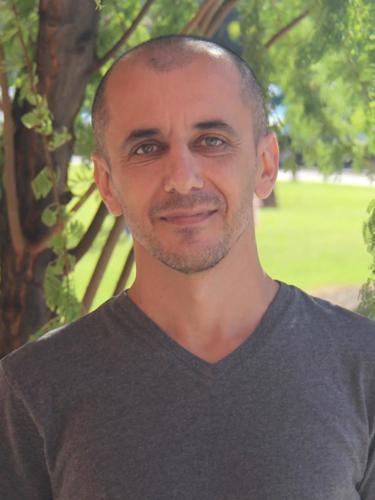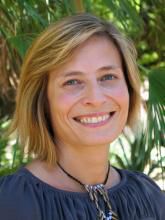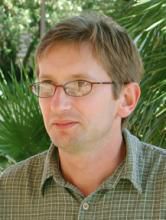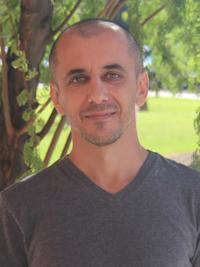Three University of Arizona professors are looking to change the way people do science. Their approach? Using artificial intelligence to analyze large amounts of data to help scientists around the world make discoveries.
Computer scientist Mihai Surdeanu and geoscientists Barbara Carrapa and Mihai Ducea submitted a proposal to the National Science Foundation’s 2026 Idea Machine competition earlier this year. Out of over 800 submissions, they were selected along with 32 other entries to move into the second phase of the competition.
Also among the remaining entries affiliated with the UA is “Reinventing Scientific Talent,” a submission by CyVerse education, outreach and training lead Jason Williams. CyVerse is a UA-led data project helping scientists all over the world access research in life sciences.
The NSF 2026 Idea Machine is looking for breakthrough research in STEM that crosses boundaries, challenges thinking and has a significant societal impact. These “big ideas” will inform the U.S. agenda, set the stage for future research and serve as platforms for investment by the foundation.
Surdeanu, Carrapa and Ducea believe their proposal will have significant impact.
With the amount of scientific research and publications that exists, they said, scientists are incapable of having a complete view of the data available. Humans are simply unable to process all that information. Because of this challenge, scientists are unable to draw objective conclusions about the global impact of their research.
“We all believe this could change the way we do science,” said Surdeanu. “In order to come up with new scientific hypotheses and evaluate the real impact of findings in science we need to have an objective and global review of the scientific literature. This is not possible to do manually today.”
For example, according to Surdeanu, PubMed is a National Institute of Health repository of biomedical publications that adds more than 1 million publications each year. It would be impossible for a human to analyze all of this research.
What these scientists are proposing is that we instead use artificial intelligence “butlers” to help do science that includes all of the data available. “Science is critical to building a better society. We have reached a point where doing proper science means letting machines help us,” said Surdeanu.
Through this approach to the systematic analysis of scientific research, the AI butler would act as a computerized research assistant and work alongside the scientist to analyze large amounts of data, draw conclusions and infer new knowledge.
Surdeanu isn’t new to this area of research. In fact, at the UA this is already taking place.
Surdeanu worked on a team of scientists from the UA’s Department of Computer Science, the School of Information and Library Science and the Department of Molecular and Cellular Biology to build technology that is capable of reading thousands of cancer research publications per day and drawing new conclusions from that information.
Along with researchers at Oregon Health and Science University, they found the knowledge gathered by the machine reading technology led to a better understanding of the cellular makeup of seven different cancers.
Scientists applied this same technology to children’s health, which requires knowledge from multiple fields such as biology and psychology. With the help of researchers from these various specialties, the automated research assistant analyzed thousands of publications and created a model that explains how these factors impact a child’s health, all within a couple of hours.
So what are Surdeanu, Carrapa and Ducea looking to do next?
“Probably the most underrated science of all in the modern world is the science that helps us find the most resources,” said Ducea.
One of the problems that geoscientists face, according to Dueca, is that there are so many bigger picture questions that require knowledge from many different fields, including knowledge that has been collected since Earth’s formation, over 4½ billion years ago.
The scientists propose this hybrid AI-human approach to geosciences, which they believe will have a significant impact on the way the earth is studied in the midst of global changes to the planet.
“Geoscience is inherently multidisciplinary, so it is even more difficult for us to keep up with the relevant data and discoveries,” said Carrapa, who also serves as the department head of geosciences at the UA. “Several geosciences findings also have impact on other fields such as biology and ecology. Therefore, to be able to truly understand the potential impact of our science on other fields we need to be able to look beyond single expertises. AI can help with this and find potential connections, which otherwise we would miss because of the shear volume of available information that humans are incapable of processing.”
Surdeanu, Carrapa and Ducea’s proposal and video pitches can be found on the National Science Foundation’s website — www.nsf.gov.
All of the remaining entries are open to public comment and input. Twelve teams will be selected to enter phase three of the competition. The grand prize for the competition includes a $26,000 prize. Winners will be announced in September or October, according to the NSF website.
“I hope this will provide some extra boost for a bigger effort to develop this idea,” said Surdeanu.









